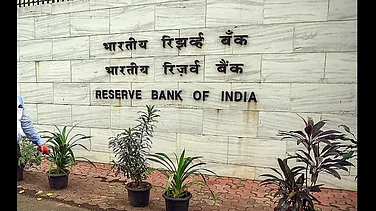Close on the heels of the Supreme Court order, lifting the ban on classification of non-performing assets, Reserve Bank of India (RBI) on Thursday asked banks to closely monitor their bad loans and prepare for higher provisioning in the wake of the second Covid wave.
The waiver of compound interest on all loan accounts which opted for moratorium during March-August 2020 may put stress on banks’ financial health.
The apex bank, however, expressed confidence that banks are better positioned than before in managing stress in their balance sheets in view of higher capital buffers, improvement in recoveries and a return to profitability.
“Stress tests indicate Indian banks have sufficient capital at the aggregate level even in a severe stress scenario. Bank-wise as well as system-wide supervisory stress testing provides clues for a forward-looking identification of vulnerable areas,” RBI said in its annual report 2020-21 released on Thursday.
The annual report also emphasised the need for banks to keep a tab on Non-Performing Assets (NPAs) and accordingly earmark capital for provisioning.
“With the lifting of the interim stay on asset classification standstill by the Hon’ble Supreme Court on March 23, 2021, banks’ asset quality will need to be closely monitored in coming quarters, with preparedness for higher provisioning,” it said.
The waiving of interest on interest charged on loans during the moratorium period (March 1, 2020 to August 31, 2020) may also impinge on finances of the lending institutions.
Compound interest support scheme for loan moratorium cost the government Rs 5,500 crore during 2020-21, and the scheme covered all borrowers, including prompt ones who did not avail moratorium.
Considering the potential stress due to Covid, banks were advised to defer phase-in of the last tranche of Capital Conservation Buffer (CCB) of 0.625 per cent from September 30, 2020 to April 1, 2021. This was further deferred by six months to October 1, 2021.
CCB is not applicable to small finance banks, payment banks, regional rural banks and local area banks.































